Iran will hold a runoff presidential election on July 5 after Friday's vote saw none of the four candidates securing an outright win.
According to the final count announced by the election headquarters on Saturday, Masoud Pezeshkian garnered the highest number of votes — 10.4 million.
His closest competitor, Saeed Jalili, came second with 9.4 million votes.
Parliament speaker Mohammad Bagher Ghalibaf trailed behind with 3.3 million votes, while former Interior Minister Mostafa Pourmohammadi received just over 206,000 votes.
To shed more light on this issue, Mehr News Agency reached out to the Iranian political expert in US affairs, Amir Ali Abolfath, asking for his opinion regarding the candidate's point of view regarding foreign policy.
Issues that were discussed in the interview include Saeed Jalili and Masoud Pezeshkian's agenda regarding the revival of JCPOA, the differences between the attitudes of both of them towards the JCPOA and its importance in their foreign policy and their considerations if they decide to test reviving the agreement.
The following is the text of the interview:
Of course, this question should be answered by the candidates themselves and I am not a representative of any of them. Still, based on their records and the political parties they belong to, both candidates and their parties are all convinced that the US should return to the JCPOA.
JCPOA (Joint Comprehensive Plan of Action) was a decision that the Islamic Establishment accepted and implemented due to reasons and expediencies, and Iran acted upon its commitments to the agreement.
The United States withdrew from the JCPOA and all these political parties that participated in this election believe that America should return to the JCPOA, even those who criticize it.
Masoud Pezeshkian's foreign policy follows the Hassan Rouhani (Iran's former president) administration policy along with Mohammad Javad Zarif's bits of advice who was the main negotiator of the JCPOA (Iran nuclear deal ) as Iran's former foreign minister.
Saeed Jalili who is famous for criticizing the JCPOA, also believes that the US should return to negotiations.
Iran's martyr president Ebrahim Raeisi, despite all his criticisms of the JCPOA, stated in the presidential debate of 1400 that we should force the US to return to the JCPOA.
Generally, both candidates believe that the US should return to the JCPOA but there is a difference between the views of the two candidates in terms of whether the JCPOA was good or needs to be modified.
There is also a difference in their opinion on how the country and the Islamic Establishment should deal with the JCPOA.
Pezeshkian's approach is based on persistence and interaction and showing goodwill on behalf of Iran by negotiating with the West and balancing the foreign policy that includes interacting with both the West and the East while in Jalili's point of view, Iran should not wait for the West and the US positive response to be happy and we cannot be sure that they will fulfill their promises.
Jalili believes that it is necessary to put pressure on the US from the position of power and increase Iran's national power. He believes that we should put the US in a position where it has no choice but to return to the JCPOA and this would happen only by iron fist and forcing power. The principalist political party has this idea that pressure in the US can be Iran's military or economic strength, reducing the vulnerability of the economy from sanctions and having close relations with Russia and China, or the Axis of Resistance.
They believe these tactics will lead the US to conclude that the cost of not returning to the JCPOA is too heavy.
Pezeshkian and Zarif believe that the iron fist creates dangers for the country and we should deal with the West through dialogue and tolerance, giving and taking concessions, and treating Westerners with consideration to some extent.
The goals of both political sides are the same, but the tactics to achieve the goals are different,
One side believes in iron fists and force and coercion, as well as becoming stronger and independent, while the other side believes that the capacity of the country is limited and the situation in the world is also tense. So using force and intimidation may lead to a mistake that will cause war and jeopardize relations with other countries. They say the harsh position will compromise this limited trade that we have with the world and affect the selling of oil.
I believe that both ideas and candidates are right and narrate part of this story and have a work plan for it and both points of view should be considered.
Iran should interact and discuss where necessary and be prepared to give and take concessions and at the same time we should show determination and put pressure on the West with threats
I suppose that limiting to either view is damaging for the country, and active foreign policy means considering both sides and I hope that each of these candidates who becomes the president will consider the other party's point of view.
Foreign policy in Iran is beyond the decisions of the government and even during the administration of President Raeisi who was a critic of the JCPOA, there were also indirect negotiations and exchange of messages between Iran and the USA.
Iran's foreign policy was not one-dimensional so far and it was not based on only Compromise and commitment or war and fight.
Interview by Sahar Dadjoo









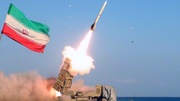
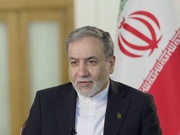
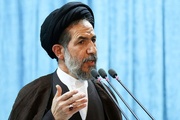









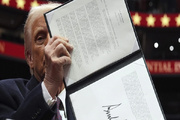
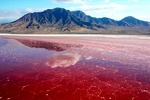
Your Comment